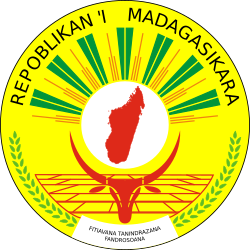| ||||||||||||||||||||||
All 127 seats in the National Assembly 64 seats needed for a majority | ||||||||||||||||||||||
|---|---|---|---|---|---|---|---|---|---|---|---|---|---|---|---|---|---|---|---|---|---|---|
| ||||||||||||||||||||||
 |
|---|
Parliamentary elections were held in Madagascar on 4 September 1960. [1] They were won by the Social Democratic Party, which claimed 76 of the 127 seats in the National Assembly. Voter turnout was 77.5%. [2]


